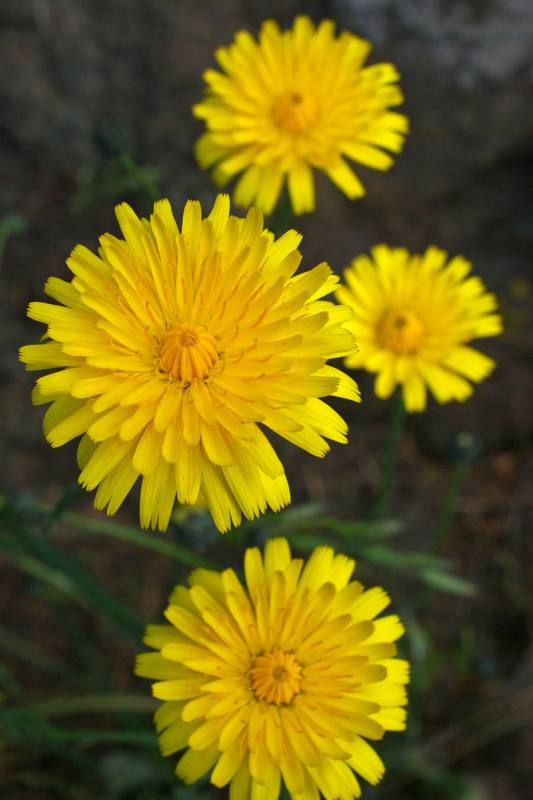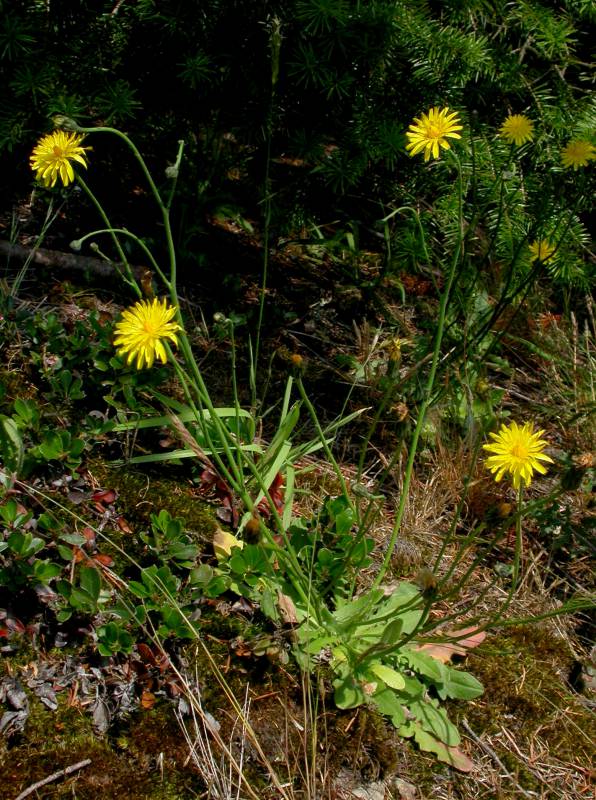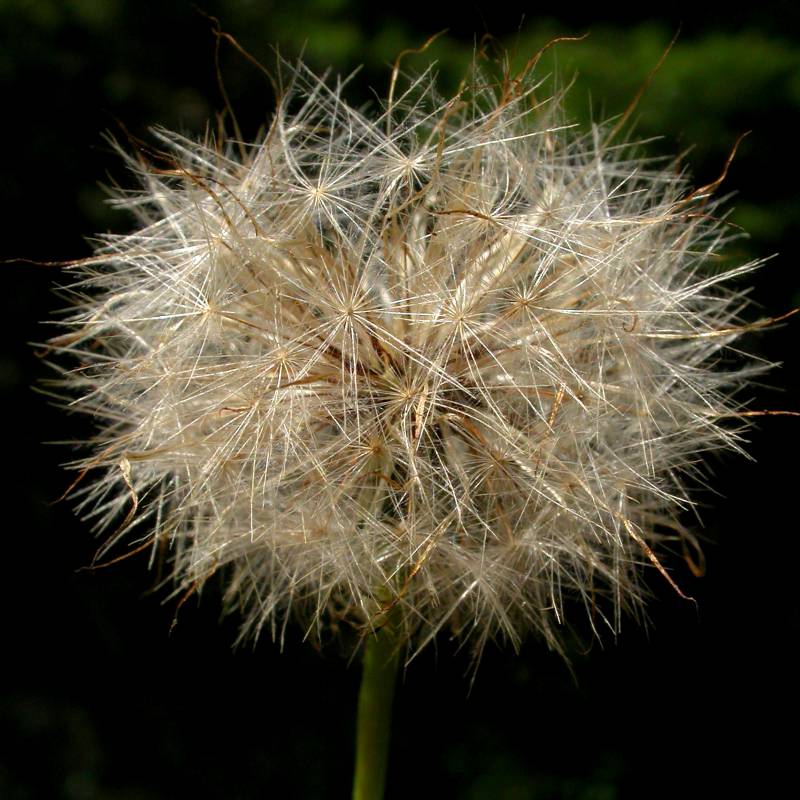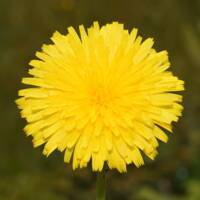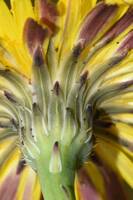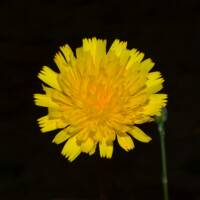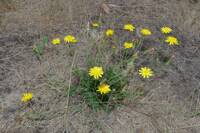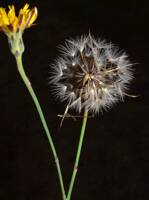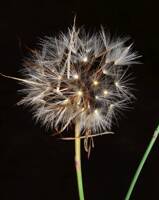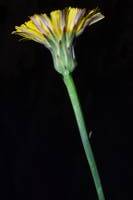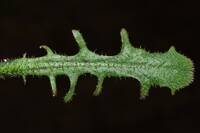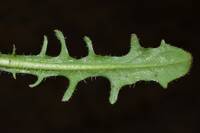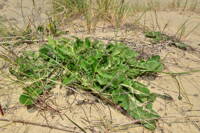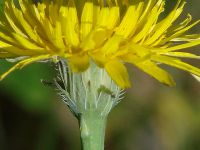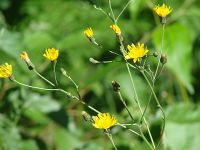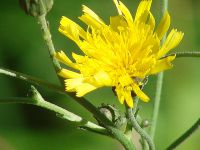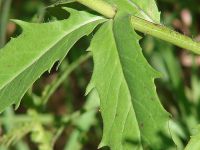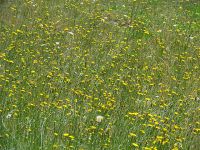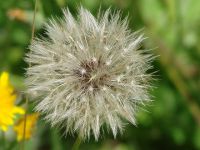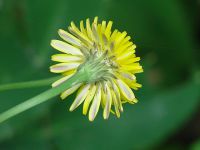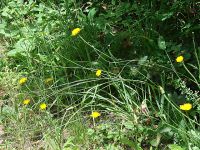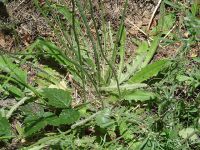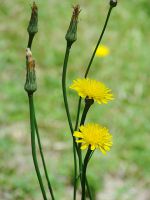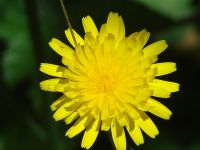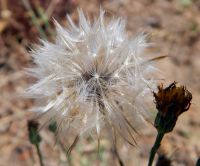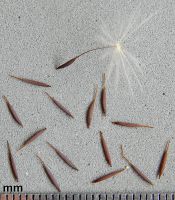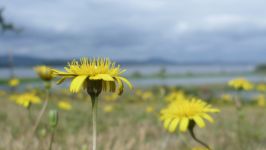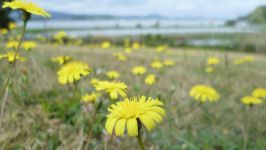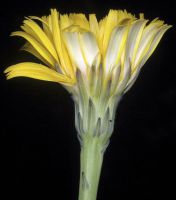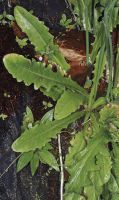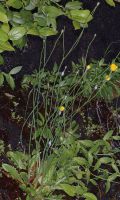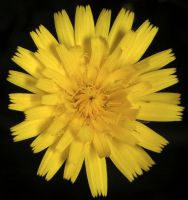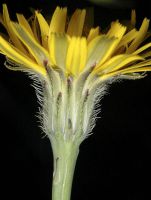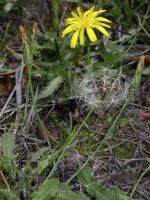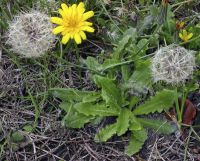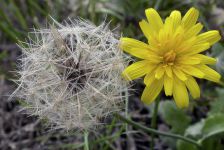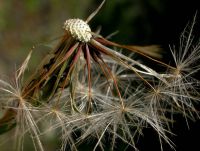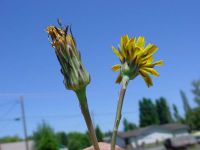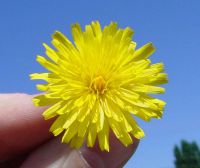Distribution: Occurring chiefly west of the Cascades crest in Washington; Alaska to California, east to the Rocky Mountains, and further east across most of North America to the Atlantic Coast.
Habitat: Disturbed areas, grassy balds, prairies, grasslands, lawns, and roadsides.
Flowers: May-October
Origin: Introduced from Europe
Growth Duration: Perennial
Conservation Status: Not of concern
Pollination: Bumblebees, bees, flies, beetles, wasps
Perennial from a short, woody base, usually with several of the fibrous roots enlarged, 1.5-6 dm. tall, the stem branched above and nearly naked, with milky juice.
Leaves all basal, oblaneolate, toothed or pinnatifid, 3-35 cm. long and 5-70 mm. wide, covered with short, stiff, pointed hairs.
Heads several, terminating the branches, showy; involucre 10-15 mm. high, the bracts imbricate; corollas all ligulate, yellow, surpassing the involucre and about 4 times as long as broad; receptacle covered with chaffy bracts; pappus of plumose bristles, except the outer merely barbellate and shorter.
Acnenes 4-7 mm. long, with small, sharp projections on the nerves, and with a slender beak that is usually much longer than the achene.
Publication: Sp. Pl. 2: 811. 1753.
PNW Herbaria: Specimen records of Hypochaeris radicata in the Consortium of Pacific Northwest Herbaria database
WA Flora Checklist: Hypochaeris radicata checklist entry
OregonFlora: Hypochaeris radicata information
E-Flora BC: Hypochaeris radicata atlas page
CalPhotos: Hypochaeris radicata photos

